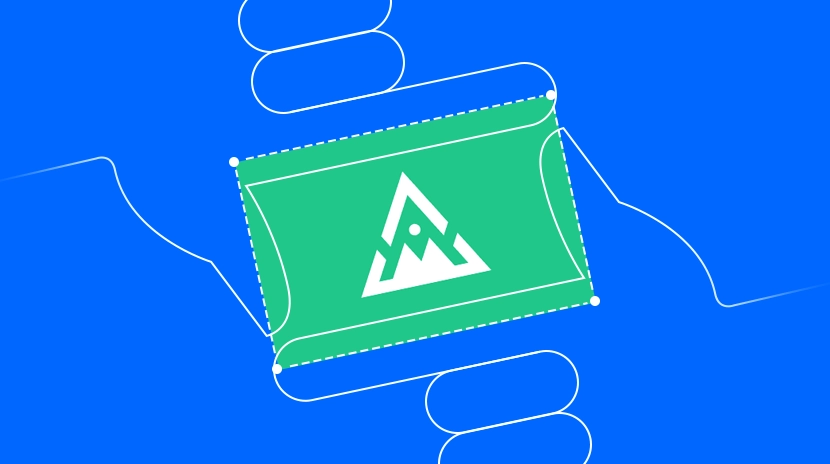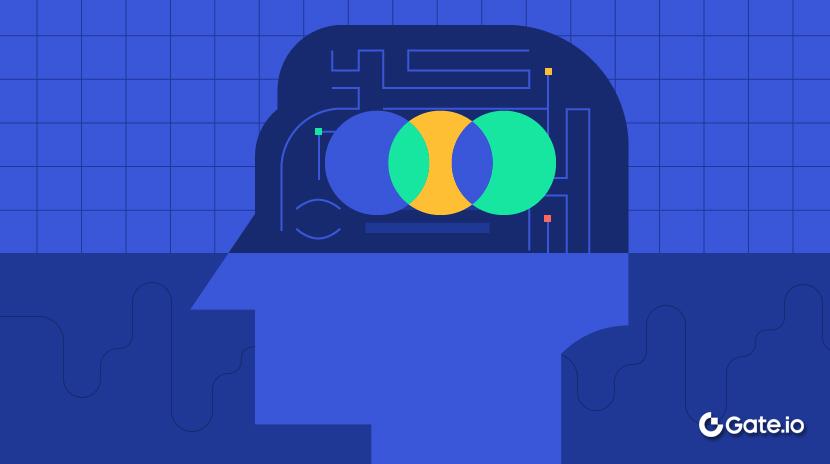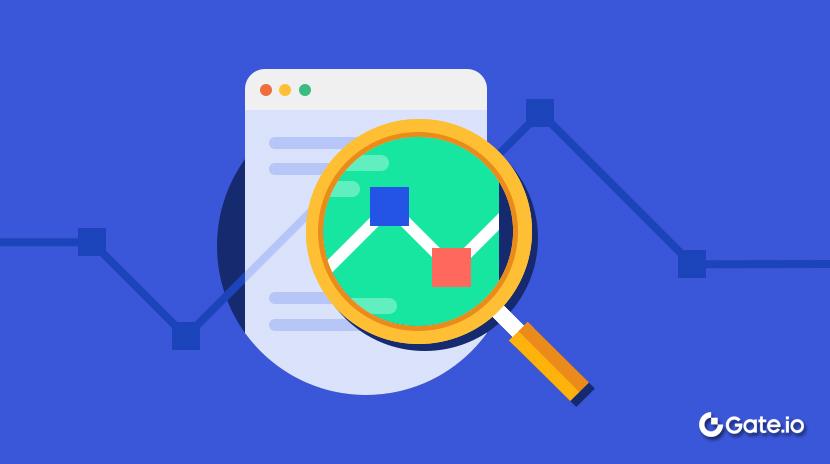BTC Wallet Address

What Is a BTC Wallet Address?
A BTC wallet address is a unique identifier used to send and receive Bitcoin, functioning similarly to a bank account number but without exposing your private key. It is derived from a public key through encoding and typically starts with 1, 3, bc1, or bc1p. These addresses are used for wallet transactions and for depositing or withdrawing funds on exchanges.
You can think of a BTC wallet address as your "payment code." When someone transfers Bitcoin to this address, and the transaction is recorded on the blockchain, you gain control of those funds. The address itself is only a receiving identifier; true control comes from possessing the corresponding private key.
How Is a BTC Wallet Address Generated?
A BTC wallet address is usually generated by deriving a public key from a private key, then applying hash functions and checksum encoding to the public key. The private key is a string of random numbers—think of it as your "safe deposit key." The public key, derived mathematically from the private key, acts like a "doorbell number" that can be shared publicly.
The process can be summarized as: private key → public key → hashing (e.g., a combination of SHA-256 and RIPEMD-160) → adding checksum → encoding (such as Base58 or Bech32) → resulting in the BTC wallet address. This process ensures that the address is recognizable by wallets and can be validated for errors.
Different address types use various encoding and script formats, which affect transaction fees, compatibility, and available features. For example, Bech32 is used for SegWit addresses, reducing transaction size and typically lowering fees.
What Types of BTC Wallet Addresses Exist?
There are several types of BTC wallet addresses, each corresponding to different technical standards and compatibility:
- Legacy (P2PKH): Starts with 1. The original format, widely supported.
- P2SH: Starts with 3. Commonly used for multi-signature wallets or script encapsulation, highly compatible.
- Bech32 SegWit (P2WPKH/P2WSH): Starts with bc1. Utilizes SegWit for smaller transaction sizes and generally lower fees.
- Taproot (P2TR): Starts with bc1p. Supports enhanced privacy and more complex scripting; ecosystem tools are continually improving.
Which type you choose depends on your wallet’s support, fee requirements, and use case. Most modern wallets default to SegWit or Taproot addresses to optimize for lower fees and future compatibility.
How Do You Use a BTC Wallet Address to Receive and Send Funds?
To receive Bitcoin, display your BTC wallet address or its QR code; the sender can then transfer funds to you. To send Bitcoin, input the recipient's BTC wallet address in your wallet app, set the amount and miner fee (gas fee), and broadcast the transaction to the network for confirmation.
Step 1: Make sure you have selected the “Bitcoin Mainnet.” Addresses from different blockchains are not compatible; using the wrong network may result in unrecoverable funds.
Step 2: Copy or scan the BTC wallet address, verifying its prefix and length. It's recommended to start with a small test transaction to ensure successful receipt.
Step 3: Set the miner fee. Higher fees usually mean faster confirmation; setting it too low may result in longer wait times.
Step 4: After sending, check the number of confirmations on the blockchain. Several confirmations are typically required for the transaction to be considered final, with timing dependent on network congestion and fee size.
How Are BTC Wallet Addresses Used on Gate, and What Should You Watch Out For?
On Gate, BTC wallet addresses are primarily used for deposits and withdrawals. When depositing, Gate generates a unique BTC wallet address for your account. Copy this address, follow on-screen instructions to transfer funds, and wait for confirmation.
Step 1: On Gate, choose “Deposit,” select BTC as your asset and Bitcoin as the network. The system will display your deposit BTC wallet address and QR code.
Step 2: Send funds from an external wallet or another platform to this address. Pay attention to the minimum deposit amount and required confirmations as indicated on Gate’s deposit page.
Step 3: After depositing, check your "Funds Record" for status updates. If funds do not arrive after a long time, verify you selected the correct network, that the address is complete, and that the transaction hash is confirmed.
For withdrawals, enter the recipient’s BTC wallet address, set the miner fee and amount, and confirm the risk warning. Never withdraw BTC to an address from a non-BTC blockchain.
Important note: BTC does not use "memo" or "tag" features (unlike some other blockchains); transactions rely solely on address and amount. For large amounts, always start with a small test transfer.
How Can You Verify If a BTC Wallet Address Is Valid?
Address validity can be checked by examining its prefix, encoding, and checksum. Addresses have specific prefixes and length ranges; their encoding includes checksum bits, and wallets will flag obvious input errors.
Step 1: Check if the prefix is 1, 3, bc1, or bc1p and if the length is reasonable.
Step 2: Use a blockchain explorer to search for the BTC wallet address to see if it has prior transactions or is recognized as a valid format. Lack of history doesn't mean invalidity but can help with assessment.
Step 3: Send a small test transfer within your wallet. If the transaction is confirmed by the network and visible in an explorer, you can further confirm the address is usable.
If you enter an incorrect but valid address (passes checksum), funds may be sent to an address controlled by someone else—usually impossible to recover. Always double-check before sending.
What Are the Privacy and Risk Considerations With BTC Wallet Addresses?
A BTC wallet address serves as an identifier on a public ledger; anyone can view all transaction records and balances associated with it. Reusing addresses exposes your financial flows and habits, compromising privacy.
To improve privacy, generate a new BTC wallet address for each incoming payment when possible or use tools that enhance privacy (such as PayJoin). Always safeguard your private keys and mnemonic phrases against malicious software, phishing websites, and impersonators.
For security: Transactions are irreversible; mistakes in addressing or falling victim to scams often result in permanent loss. Be cautious with unsolicited "airdrops" or "rewards" from unknown sources.
How Do BTC Wallet Addresses Differ From Other Blockchain Addresses?
BTC wallet addresses differ from those used on Ethereum and other blockchains. For example, Ethereum addresses typically start with 0x and follow different formatting rules; TRON and other blockchains have their own prefixes and encoding schemes.
The main distinction lies in network architecture and ledger models. BTC uses UTXO (an "unspent output" model), where transactions consume existing outputs and create new ones; Ethereum uses an account model that tracks balances more directly. Sending BTC to a non-BTC network address usually results in lost or irretrievable funds.
When using exchanges or wallets, always select the “Bitcoin” network matching your BTC wallet address. Cross-chain errors can result in permanent loss of assets.
What Are the Current Trends for BTC Wallet Addresses?
As of 2025, best practices around BTC wallet addresses are evolving toward lower fees and stronger privacy features. Adoption of SegWit and Taproot addresses continues to grow, with wallets and service providers increasingly defaulting to bc1 or bc1p formats for improved efficiency and scripting flexibility.
Payment experiences are also improving—more tools now offer dynamic fee selection, automated change handling, and easier QR code payments. Privacy-enhancing features and compliance tools are developing alongside these advances as the ecosystem balances usability, privacy, and security.
Key Takeaways About BTC Wallet Addresses
A BTC wallet address serves as the fundamental gateway for sending and receiving Bitcoin—much like a bank account number but derived from public key cryptography. Understanding how addresses are generated, their types, differences in fees, and network confirmations will help you safely deposit, withdraw, and transfer funds via both wallets and Gate. Always verify both address and network before transacting; start with small tests when possible; protect your private keys and mnemonic phrases; and minimize address reuse when possible to balance privacy with security.
FAQ
Can You Recover a Lost BTC Wallet Address?
The address itself cannot be recovered if lost; however, if you have saved your private key or mnemonic phrase, you can restore access to your assets by re-importing them into a wallet. Addresses are generated from private keys—losing an address is equivalent to losing its corresponding private key. Check your backups immediately; you can recover funds by re-importing on platforms like Gate.
Can One Wallet Have Multiple BTC Addresses?
Yes. Most BTC wallets support generating an unlimited number of addresses, each capable of independently receiving Bitcoin. This enhances privacy—using different addresses for each payment makes it difficult for others to link all your assets together. Gate wallets allow you to generate new addresses for receiving at any time.
Can You Retrieve BTC Sent to the Wrong Address?
Once a transaction is confirmed on-chain, it is generally impossible to recover BTC sent to an incorrect address due to blockchain’s irreversible nature. Always triple-check addresses before sending—use copy-paste rather than manual entry—and conduct small test transfers first on platforms like Gate. If you sent funds to an exchange account’s address, you may contact support for assistance, but recovery chances are low.
Can Publicly Sharing My BTC Address Result in Theft?
Simply sharing your BTC address cannot result in theft. The address is public information—anyone can view its transaction history and balance—but they cannot withdraw funds without access to your private key or mnemonic phrase. Feel free to share your receiving address; just make sure never to reveal your private key under any circumstances.
How Do You Confirm If a BTC Address Belongs to Your Wallet?
Check your wallet app’s address list or use a blockchain explorer to view transaction histories associated with an address. The most reliable method: generate a new address in your wallet app, send a small amount of BTC to it, then verify receipt via a blockchain explorer. In platforms like Gate’s wallet management page, all your owned BTC addresses are clearly listed.
Related Articles

In-depth Explanation of Yala: Building a Modular DeFi Yield Aggregator with $YU Stablecoin as a Medium

How to Do Your Own Research (DYOR)?
